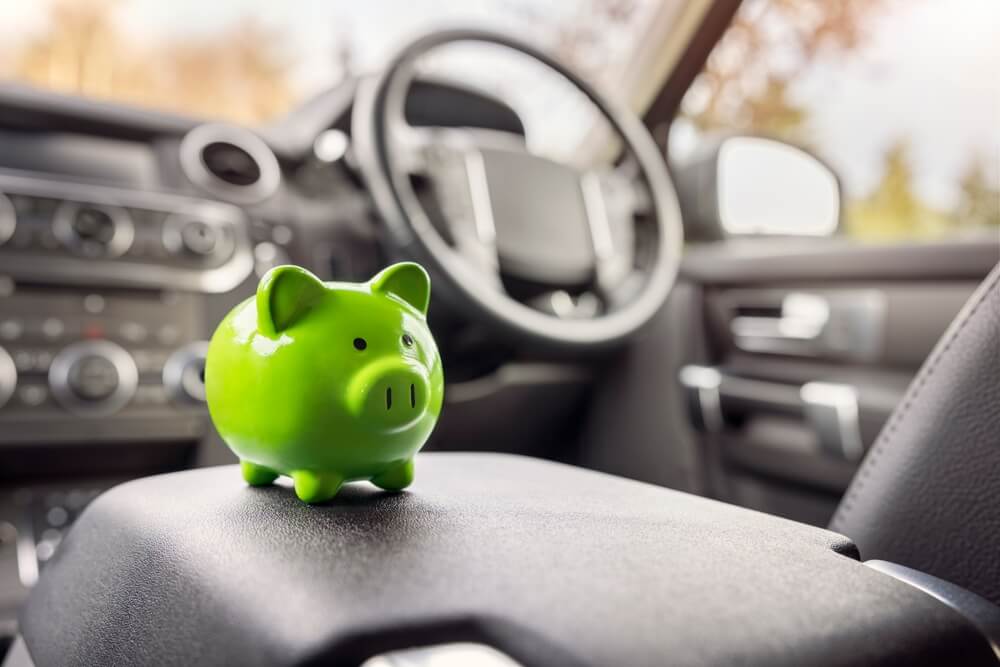November 21st, 2024
How Much Does It Cost to Replace a Brake Disc?
Posted By: BigWantsYourCar
Extra £150 on top of your valuation when you upload pictures of your car within 24 hours**T&Cs apply

When it comes to selling your car, several things can change how much it’s worth. From the car’s age and mileage to its overall condition and where you live, understanding these factors can help you get the best price. In this blog, we’ll explore the key factors that affect a car’s value and provide tips on maintaining or even increasing its selling price.
One of the most important things that affects a car’s value is age. Generally, cars lose value as they get older. For example, a car that’s a year older than another similar car can be worth about 2% less. This means a car worth £15,000 could lose £300 in value after just one year. While some classic or rare cars might be worth more to prospective buyers as they age, most cars see their value go down over time because newer models have more advanced features.
Mileage is another big factor. The more miles a car has been driven, the less it’s usually worth. This is because high-mileage cars tend to have more wear and tear and might need more repairs. On average, every 10,000 miles can take about 5% off the car’s value. So, a car with lower mileage will often sell for a higher price than a similar car with higher mileage.
The overall condition of your car is incredibly important. Even small scratches or dents can reduce its value. If the car has been well-maintained and is in good shape both inside and out with no mechanical issues, it’s likely to be worth more. Regular cleaning, fixing minor damages, and taking care of any needed repairs can help keep your car in better condition, potentially earning you more in a private sale.
Having a complete service history on your car can significantly increase it’s sale price. Buyers like to know that a car has been regularly maintained by professionals. Keeping records of your maintenance history, including all services and repairs, shows that the car has been well looked after. This can add up to 7% to its value!
The number of previous owners can also affect a car’s value. Cars that have had fewer owners are generally worth more because they come with the assumption that they’ll have a lower mileage and be in a better condition. A standard family car with many past owners might be valued less than a similar car with only one or two previous owners.
Changes or modifications to your car can impact its value. Most buyers prefer cars that haven’t been modified, as they can worry about the quality of the modifications and potential insurance issues. In most cases, a car that’s been kept in its original condition is worth more than a modified one.
The colour of your car can have a surprisingly big effect on its value. Some colours are more popular and can make a car more desirable, while unusual colours might make it harder to sell. There’s no exact rule, but choosing a colour that is generally liked can make a more positive impression on potential buyers and help keep your car’s value higher.
Believe it or not, the time of year can also play a big role in your car’s value. For example, convertibles are often worth more in the summer, while SUVs might fetch a higher price in the winter. If you can, try to sell your car during the season when it’s in higher demand.
Where you live can affect how much your second-hand car is worth. Some cars are more popular in certain areas. For instance, a sports car might sell for more in a big city, while an off-road vehicle could be worth more in rural areas. Knowing your local market can help you get a better price.
Cars from well-known, prestigious brands tend to hold their value better than more common brands and cheaper models. For example, a Mercedes might be worth more than a Ford because of the brand’s reputation and perceived quality. Not sure how much your car brand is worth second-hand? Have a look at what similar models are going for in your area, and remember, overpricing is more likely to put buyers off than fetch you a better deal.
The fuel your car uses can also affect its value. Diesel cars, for instance, often have higher resale values due to their fuel efficiency and durability, especially for long-distance driving. However, with increasing concerns over emissions and stricter regulations, the demand for diesel cars has declined in some areas. Petrol cars are generally more popular due to their lower initial cost and suitability for shorter trips. Hybrid and electric cars are becoming more valuable as people look for environmentally friendly, cost-effective options.
Ready to get the best value for your car? You’re in the right place. We use real-time market data to give you instant, accurate online valuations that guarantee you the best price for your ride.
No more guessing, haggling or waiting – with us, it’s as easy as 1, 2, 3. Send us your reg and a few photos, and accept your offer. We’ll come to collect your car for free before paying you on the spot. It really is that simple – get started today.
November 21st, 2024
Posted By: BigWantsYourCar
November 13th, 2024
Posted By: BigWantsYourCar
November 11th, 2024
Posted By: BigWantsYourCar
October 1st, 2024
Posted By: BigWantsYourCar
September 20th, 2024
Posted By: BigWantsYourCar
September 16th, 2024
Posted By: BigWantsYourCar
September 15th, 2024
Posted By: BigWantsYourCar
September 3rd, 2024
Posted By: BigWantsYourCar
Get a free valuation today
Value my car